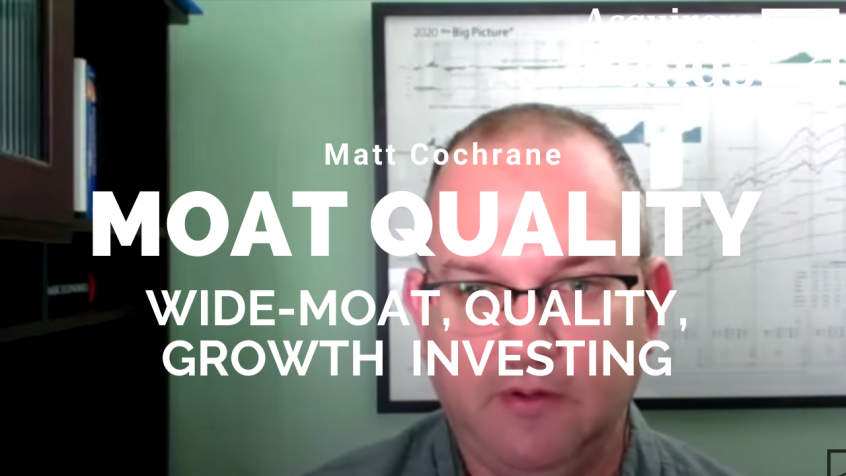During their recent interview on The Acquirers Podcast with Tobias, Matt Cochrane, Lead Advisor at 7Investing discussed Just Buy The Best Companies. Here’s an excerpt from the interview:
Tobias: Do you use that as your basis but then how do you evolve? How do you start valuing companies or thinking about how you make money out of the stock market?
Matthew: I would say it started off with a really simple thought. At one point, I just had an epiphany. I had this hodgepodge of a portfolio and everything was a very different thesis. it was just a little bit of everything turnaround stories mixed in with, and there’s nothing wrong with that. But I didn’t have an overall philosophy. I was maybe trying–
Tobias: Trying to find them.
Matthew: Yeah. I think that’s a good way to put it. I was really searching. Then, I really think it was something just clicked in me one day, and I was like just buy the best companies. If you just buy the best companies, you’ll be okay. I used to go to stock price charts, and just be like, look, pick any stock chart in the universe of any great company, Coca Cola. I’m talking about 50-year stock price charts. Johnson & Johnson, IBM, any great company that has been a phenomenal investment over a really long time. There are plenty of periods but if you isolate like, “Look, if you bought this stock right here, for six years, it didn’t break that price.” That’s a frustrating six years. Yeah, if you held on, you would have done phenomenally well.
I think just doing that and understanding, okay, if you buy great companies, over the long term, you’re going to be okay. Now, from that very simple thought, the next question is what’s the great company, right? It was that first thought that was, buy great companies and hold on for a really long time, and you’re going to be okay. And from there, everything else just filtered through.
Tobias: So, that leads us to the never sell discussion. Let’s discuss that a little bit. What’s your interpretation of that and how do you think about it?
Matthew: I think people when they criticize it, mostly get it wrong. So, first start, I would say it’s mostly aspirational, not prescriptive. There’s nuance here, it can be prescriptive too. I would first start to say though, when I buy a company, there’s no exit plan. Yes, of course, there’s things I’m going to look for, I’m going to keep tabs on it, and if it starts to really fail– we’ll get into this, but there is a time to sell companies. However, going into an investment, one of the things I really look for when I establish a position is, do I think I can hold on to this company for a really, really long time? If that’s the case, okay.
Now, again, going back to just looking at really long-term stock price charts and isolating these periods of time where a company maybe got a little ahead of itself in valuation, maybe had some short-term problems like you could talk about Chipotle. When they had, it’s like food poisoning issues. I don’t have a position in Chipotle. But if you looked at that, you could say, I don’t think this is going to kill the company. They’re changing their procedures or they’re changing their policies, and it’s definitely a short-term hit. But like David Gardner, one of the co-founders of Motley Fool says like, “Are these storm clouds you can see through?” Are these storm clouds like you can see like the sun like– Yeah, it’s dark, where, I live in South Florida and there can be a thunderstorm coming in, but if I look on the horizon, do I see a patch of sunlight there, and a lot of times, the answer to that is yes. Okay, these are problems this company’s having.
Now, sometimes, you don’t know. We talked about Intel a little bit. Are these storm clouds you can see through or are these permanent dark clouds that Intel’s never going to regain its greatness? I don’t know enough about the company to know the difference. However, if you know enough and you think they are temporary, this is probably a great time to get into Intel. Or, if you know enough and know it’s not temporary, then it might be a horrible time to get into Intel. But being able to discern the difference between long-term fundamental problems with your thesis or short-term problems that a company can get through can make a real difference.
You can find out more about Tobias’ podcast here – The Acquirers Podcast. You can also listen to the podcast on your favorite podcast platforms here:
For all the latest news and podcasts, join our free newsletter here.
Don’t forget to check out our FREE Large Cap 1000 – Stock Screener, here at The Acquirer’s Multiple:



